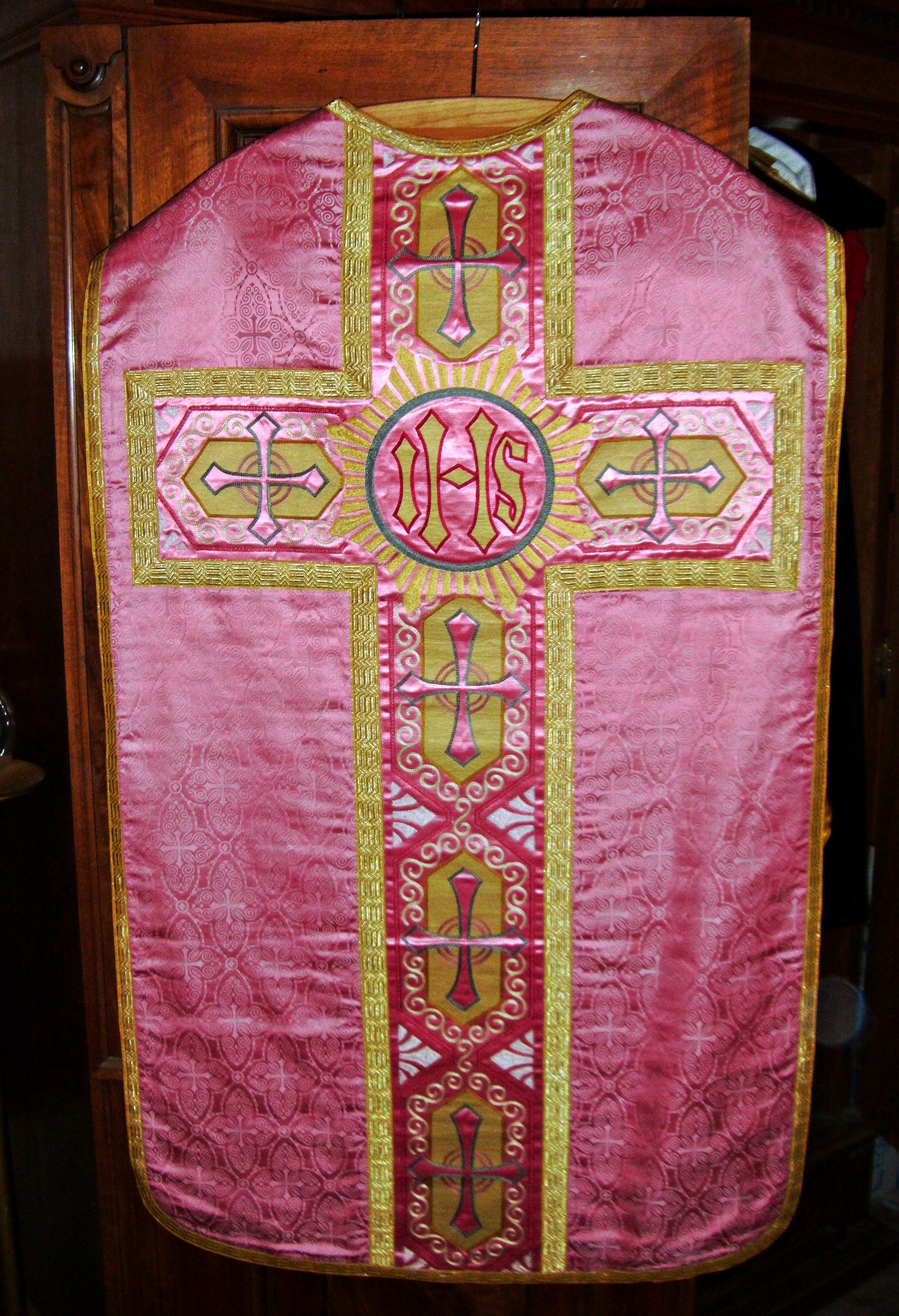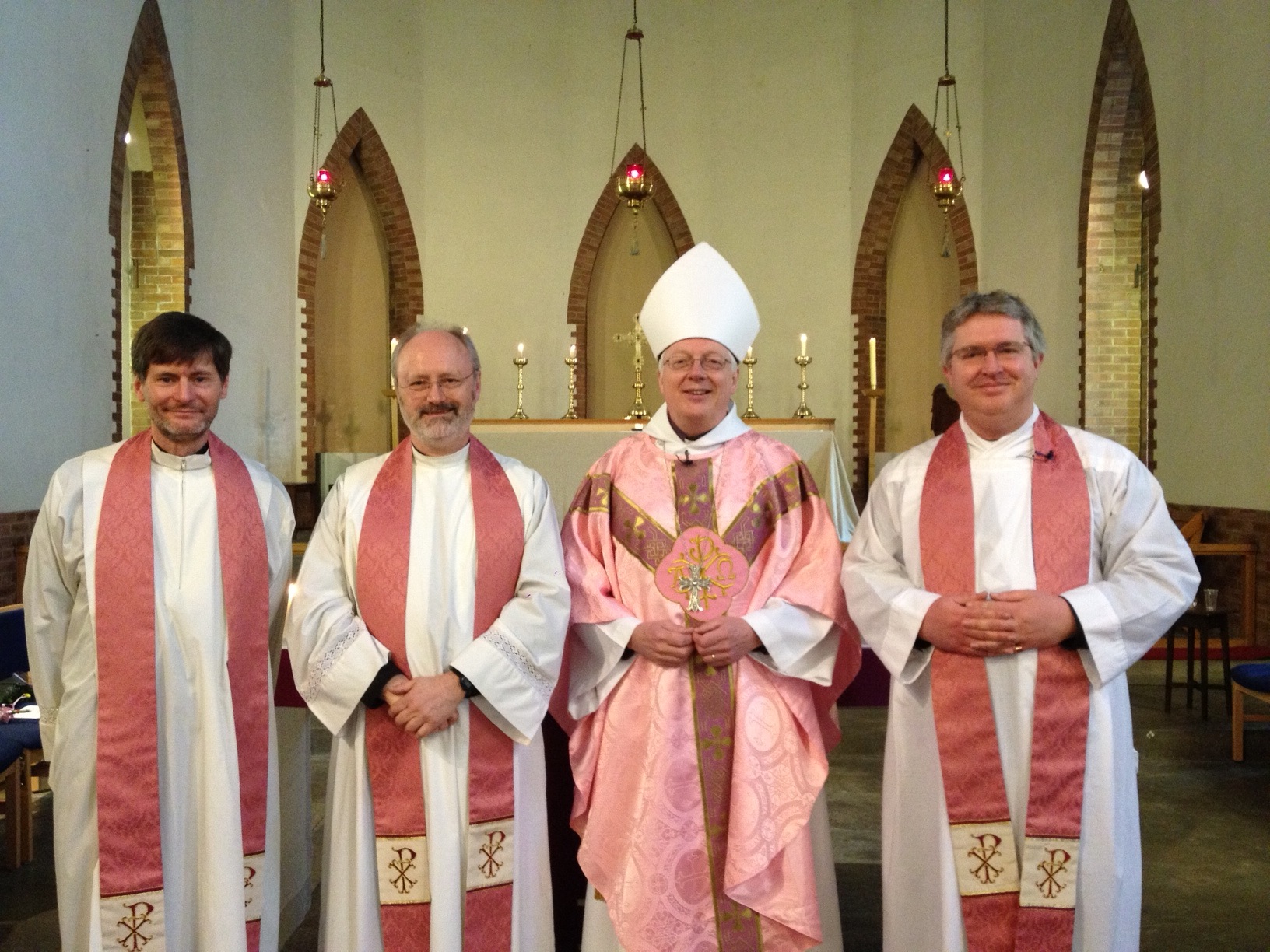Laetare on:
[Wikipedia]
[Google]
[Amazon]

 Laetare Sunday ( Church Latin: ; Classical Latin: ; English: , , , , ) is the fourth Sunday in the season of
Laetare Sunday ( Church Latin: ; Classical Latin: ; English: , , , , ) is the fourth Sunday in the season of
 On Mothering Sunday, Christians have historically visited their mother church—the church in which they received the
On Mothering Sunday, Christians have historically visited their mother church—the church in which they received the
''Catholic Encyclopedia'':
"Laetare Sunday" {{Liturgical year of the Catholic Church Lent Christian Sunday observances March observances

Lent
Lent ( la, Quadragesima, 'Fortieth') is a solemn religious observance in the liturgical calendar commemorating the 40 days Jesus spent fasting in the desert and enduring temptation by Satan, according to the Gospels of Matthew, Mark and Luke ...
, in the Western Christian liturgical calendar. Traditionally, this Sunday has been a day of celebration, within the austere period of Lent. This Sunday gets its name from the first few words () of the traditional Latin entrance ( Introit) for the Mass of the day. ("Rejoice, O Jerusalem") is Latin from Isaiah 66:10.
History
The term "Laetare Sunday" is used by most Roman Catholic, Lutheran andAnglican
Anglicanism is a Western Christian tradition that has developed from the practices, liturgy, and identity of the Church of England following the English Reformation, in the context of the Protestant Reformation in Europe. It is one of th ...
churches. The word comes from the Latin , the singular imperative of : "to rejoice".
The full Introit reads:
Psalm:
Rejoice ye with Jerusalem; and be ye glad for her, all ye that delight in her: exult and sing for joy with her, all ye that in sadness mourn for her; that ye may suck, and be satisfied with the breasts of her consolations. ''Psalm'': I was glad when they said unto me, We will go into the house of the Lord.
Alternative names
This Sunday is currently also known as Mothering Sunday, Refreshment Sunday, mid-Lent
Lent ( la, Quadragesima, 'Fortieth') is a solemn religious observance in the liturgical calendar commemorating the 40 days Jesus spent fasting in the desert and enduring temptation by Satan, according to the Gospels of Matthew, Mark and Luke ...
Sunday (in French ) and Rose Sunday (either because the golden rose sent by Popes to Catholic sovereigns used to be blessed at this time, or because the use of rose-colored rather than violet vestments was permitted on this day).
Historically, the day was also known as "the Sunday of the Five Loaves," from the story of the miracle of the loaves and fishes
In Christianity, the feeding the multitude is two separate miracles of Jesus reported in the Gospels.
The first miracle, the "Feeding of the 5,000", is the only miracle—aside from the resurrection—recorded in all four gospels (Matthew 14:13 ...
. Before the adoption of the modern " common lectionaries", this narrative was the traditional Gospel reading for this Sunday in Roman Catholic, Lutheran, Anglican
Anglicanism is a Western Christian tradition that has developed from the practices, liturgy, and identity of the Church of England following the English Reformation, in the context of the Protestant Reformation in Europe. It is one of th ...
, and Old Catholic churches.
The station church at Rome for this day was Santa Croce in Gerusalemme, one of the seven chief basilicas; the Golden Rose, sent by Popes to Catholic sovereigns, used to be blessed at this time and for this reason the day was sometimes called ''Dominica de Rosa''.
Customs
 On Mothering Sunday, Christians have historically visited their mother church—the church in which they received the
On Mothering Sunday, Christians have historically visited their mother church—the church in which they received the sacrament
A sacrament is a Christianity, Christian Rite (Christianity), rite that is recognized as being particularly important and significant. There are various views on the existence and meaning of such rites. Many Christians consider the sacraments ...
of baptism.
In Roman Catholic, Anglican, Lutheran and Old Catholic churches flowers may appear on the high altar and the organ
Organ may refer to:
Biology
* Organ (biology), a part of an organism
Musical instruments
* Organ (music), a family of keyboard musical instruments characterized by sustained tone
** Electronic organ, an electronic keyboard instrument
** Hammond ...
may be played as a solo instrument. Priests are given the option to wear rose-colored vestments at Mass held on this day in place of the violet vestments normally worn during Lent. The term "rose" is used to describe this lighter shade of the color violet in the Roman Rite
The Roman Rite ( la, Ritus Romanus) is the primary liturgical rite of the Latin Church, the largest of the ''sui iuris'' particular churches that comprise the Catholic Church. It developed in the Latin language in the city of Rome and, while dist ...
.
The Sunday is considered a day of relaxation from normal Lenten rigours; a day of hope with Easter at last within sight. Traditionally, weddings (otherwise banned during Lent) could be performed on this day, and servants were released from service for the day to visit their mother church, the place in which they received the sacrament of baptism (hence 'Mothering Sunday').
Laetare Sunday is the date on which the recipient of University of Notre Dame's Laetare Medal
The Laetare Medal is an annual award given by the University of Notre Dame in recognition of outstanding service to the Catholic Church and society. The award is given to an American Catholic or group of Catholics "whose genius has ennobled the a ...
is announced.
Date
Laetare Sunday is exactly 21 days before Easter Sunday, a moveable feast based on the cycles of the moon. The date can be any between 1 March and 4 April inclusive; occurrence in April is considered to be uncommon; the last occurrence was on 3 April 2011 and the next will be on 4 April 2038, after which it will not occur again until 1 April 2057 – occurrences in April are printed in the below list in . The earliest occurrence of Laetare Sunday in the twenty-first century was on 2 March 2008, and the latest will be on 4 April 2038. Laetare Sunday occurs on these dates: *2019 – 31 March *2020 – 22 March *2021 – 14 March *2022 – 27 March *2023 – 19 March *2024 – 10 March *2025 – 30 March *2026 – 15 March *2027 – 7 March *2028 – 26 March *2029 – 11 March *2030 – 31 March *2031 – 23 March *2032 – 7 March *2033 – 27 March *2034 – 19 March *2035 – 4 March *2036 – 23 March *2037 – 15 March *2038 – *2039 – 20 March *2040 – 11 March *2041 – 31 March *2042 – 16 March *2043 – 8 March *2044 – 27 March *2045 – 19 March *2046 – 4 March *2047 – 24 March *2048 – 15 March *2049 – 28 March *2050 – 20 March *2051 – 12 March *2052 – 31 March *2053 – 16 March *2054 – 8 March *2055 – 28 March *2056 – 12 March *2057 – *2058 – 24 March *2059 – 9 March *2060 – 28 March *2061 – 20 March *2062 – 5 March *2063 – 25 March *2064 – 16 March *2065 – 8 March *2066 – 21 March *2067 – 13 March *2068 – *2069 – 24 March *2070 – 9 March *2071 – 29 March *2072 – 20 March *2073 – 5 March *2074 – 25 March *2075 – 17 March *2076 – 29 March *2077 – 21 March *2078 – 13 March *2079 – *2080 – 17 March *2081 – 9 March *2082 – 29 March *2083 – 14 March *2084 – 5 March *2085 – 25 March *2086 – 10 March *2087 – 30 March *2088 – 21 March *2089 – 13 March *2090 – 26 March *2091 – 18 March *2092 – 9 March *2093 – 22 March *2094 – 14 March *2095 – *2096 – 25 March *2097 – 10 March *2098 – 30 March *2099 – 22 March *2100 – 7 MarchSee also
* Gaudete SundayReferences
''Catholic Encyclopedia'':
"Laetare Sunday" {{Liturgical year of the Catholic Church Lent Christian Sunday observances March observances